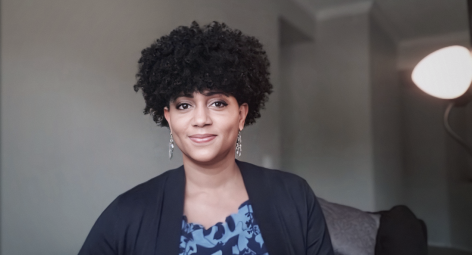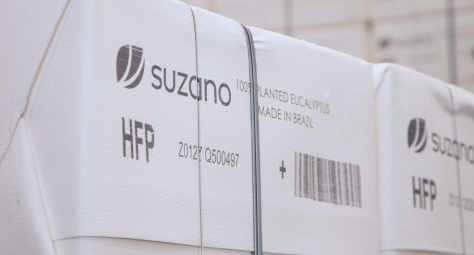sobre o que você deseja falar?


perguntas, sugestões ou problemas técnicos envolvendo a plataforma

informações sobre a empresa


By identifying the territory's potential and maintaining constant and transparent dialog about Suzano's operations, the foundations are laid for community consultation and engagement. These activities aim to develop strategies to strengthen local social institutions and contribute directly to territorial development. These strategies are customized according to the community profile and each social group's priority objectives, which is essential when we are talking about traditional communities.
Relations with Indigenous and traditional communities located in the areas of influence of Suzano's operations are conducted in a culturally appropriate, permanent manner, based on trust and mutual respect of rights and interests, by the company's Corporate Human Rights Policy and the principles established by the Corporate Policy for Relations with Indigenous Peoples and Traditional Communities. To learn more, visit the “Relations with Indigenous and traditional communities” indicator.
The following programs are examples of community engagement processes customized according to the characteristics of the Indigenous communities in the territories where Suzano operates.
Tupiniquim Guarani Sustainability Program [PSTG (ES)]
This program aims to cultivate coexistence between the company and the Tupiniquim and Guarani peoples located in Aracruz (ES) and support the municipality's 12 Indigenous communities (7 Tupiniquim and 5 Guarani villages) in managing their duly demarcated and ratified territories. The aim is to enable the occupants of these lands to re-establish the environmental conditions necessary for socio-cultural practices, to affirm their ethnic identity and carry out sustainable economic activities.
The specific objectives of each activity are:
Highlights of 2024:
Projects with Pataxós Indigenous communities (BA)
The projects' purpose is to maintain an active, culturally appropriate dialog with the traditional Indigenous communities in Suzano's area of influence, always guided by transparency and collective construction in defining lines of action. Implementing projects and actions requires due consultation and is constantly reaffirmed with the communities to make decisions. Active dialogue makes it possible to identify demands and maintain relationships and helps manage the potential and actual impacts of the company's operations.
In the municipalities of Alcobaça, Itamaraju and Prado, in the state of Bahia, Suzano maintains a relationship with 16 Indigenous villages of the Pataxós and Pataxós Hã Hã Hae ethnic groups, with the due alignment and knowledge of the competent body, the National Foundation for Indigenous Peoples (FUNAI, for its Portuguese acronym), supporting actions to value and preserve their culture and tradition, as well as the education of Indigenous children and young people. All these actions were built in a participatory way with the leaders and chiefs of the villages, and with Indigenous representative movements in the territory.
Highlights of 2024:
Relationship program with Indigenous peoples (Mapato)
The Indigenous Relations Program at the Maranhão forestry unit results from an articulation between Suzano and the Indigenous leaders of the states where this unit is influenced [Maranhão, Pará and Tocantins (Mapato)]. It aims to help conserve natural resources and improve the living conditions of Indigenous communities by enhancing and expanding sustainable agricultural practices, empowering Indigenous fire brigades and strengthening organizations, multiplying knowledge and experiences among Indigenous communities.
The programme has a participatory approach, involving Indigenous leaders and representative organizations in its implementation, monitoring, and evaluation. Its aim is to improve the management of natural resources and increase sustainable agricultural activities.
It should be noted that this scope could be broadened by the base of the representative organizations involved, the networks and forums they are part of, at the local and territorial level. For the years 2023 and 2024, five Indigenous lands (TIs) were prioritized: TI Apinajé (Apinajé ethnic group), TI Arariboia (Guajajara ethnic group), TI Fulni-o (Fulni-o ethnic group), TI Krikati (Krikati ethnic group), and TI Mãe Maria (Gavião ethnic group).
For Maranhão, a solid partnership was built between Suzano, the Coordination of Organizations and Articulations of the Indigenous Peoples of Maranhão (Coapima), Funai, the Brazilian Institute of the Environment and Renewable Natural Resources (Ibama) and Indigenous communities, based on structuring actions defined jointly by different actors.
Highlights of 2024:
Relationship project with TI Araribá communities (Aldeia Kopenoti, Aldeia Nimuendaju, Aldeia Ekeruá, Aldeia Tereguá), in São Paulo
All the support and listening aims to maintain a continuous and culturally respectful dialog with the traditional Indigenous communities in Suzano's area of influence. Actions are conducted based on transparency and the joint construction of guidelines. Implementing initiatives is preceded by appropriate consultations and reinforced by a continuous validation process with communities, guaranteeing their participation in decisions. Active dialog makes it possible to identify demands, strengthen relationships and contribute to managing potential and actual impacts resulting from the company's operations.
In the municipality of Avaí, Suzano maintains a relationship with four Indigenous villages of the Terena and Tupi-Guarani ethnic groups, with the due alignment and knowledge of the competent body, Funai, supporting actions to value and preserve their culture and tradition, as well as the education of Indigenous children and young people. These actions were considered based on listening to village leaders and chiefs.
Highlights of 2024:
| 2020 | 2021 | 2022² | 2023³ | 2024 | |||||||||||||
|---|---|---|---|---|---|---|---|---|---|---|---|---|---|---|---|---|---|
| Tupiniquim Guarani (PSTG) | Ofaié | Pataxós e Pataxós Hã Hã Hae | Tupiniquim Guarani (PSTG) | Ofaié | Pataxós e Pataxós Hã Hã Hae | Tupiniquim Guarani (PSTG) | Ofaié | Pataxós e Pataxós Hã Hã Hae | Tupiniquim Guarani (PSTG) | Ofaié | Pataxós e Pataxós Hã Hã Hae | Indígenas Mapato (Apinajé, Fulni-o, Gavião, Guajajara e Krikati) | Tupiniquim Guarani (PSTG) | Ofaié | Pataxós e Pataxós Hã Hã Hae | Indígenas Mapato (Apinajé, Fulni-o, Gavião, Guajajara e Krikati) | |
| overall number | overall number | overall number | overall number | overall number | overall number | overall number | overall number | overall number | overall number | overall number | overall number | overall number | overall number | overall number | overall number | overall number | |
|
Number of villages covered |
12 |
1 |
15 |
12 |
1 |
15 |
13 |
1 |
15 |
12 |
0 |
16 |
5 |
14 |
1 |
19 |
5 |
|
Number of participants |
1,315 |
12 |
0 |
1,340 |
15 |
0 |
343 |
30 |
0 |
275 |
0 |
851 |
830 |
1,431 |
21 |
803 |
830 |
|
Number of beneficiaries |
5,260 |
36 |
784 |
3,950 |
45 |
809 |
1,228 |
120 |
847 |
825 |
0 |
3,033 |
14,430 |
3,365 |
63 |
2,935 |
14,430 |